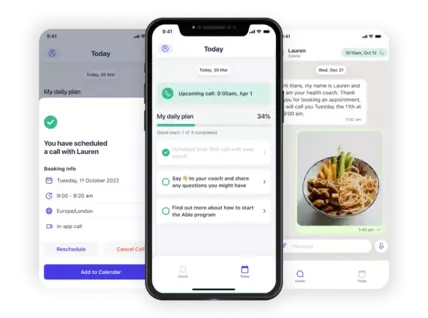Eat Smart, Not Expensive: Your Guide to Nutritious Dining on a Dime


Eating healthily on a budget is a common concern, especially in the United States where both food budgets and health consciousness are significant considerations for many households. The key to achieving this balance lies in strategic shopping, meal planning, and making informed choices about the types of food you purchase and consume. Here are some tips to help you eat healthily without breaking the bank:
- Plan Your Meals: Planning your meals for the week ahead can save you both time and money. This helps prevent impulse buys and reduces the likelihood of purchasing fast food or takeout.
- Shop with a List: After planning your meals, create a shopping list and stick to it. This can help you avoid unnecessary purchases that add to your grocery bill.
- Buy Whole Foods: Foods that are processed and packaged will cost you more in the long run and are always less healthy. Focus on buying whole foods such as fruits, vegetables, whole grains, beans, lentils, nuts, and seeds.
- Look at the Store Brands: Opt for generic or store brands when possible. They often contain the same, if not slightly better, ingredients as name brands but are priced lower. The key here is to always read the label and don’t pay attention to the front of the packaging.
- Purchase in Bulk: Buying in bulk can save money in the long run, especially for non-perishable items like rice, beans, nuts, and seeds. Wholesale clubs like BJ’s and Costco also have a wide range of organic products as well.
- Use Coupons and Rewards Programs: Take advantage of discounts, coupons, and grocery store rewards programs.
- Buy In-Season Produce: Fruits and vegetables that are in season are often cheaper and fresher. You can also buy extra and freeze them for later use.
- Grow Your Own: If you have the space, growing your own herbs, fruits, and vegetables can be a cost-effective and rewarding way to ensure you have fresh produce.
- Use an Instant Pot or Slow Cooker: For all of us who just don’t have enough hours in the day, this can be your culinary knight in shining armor. You don’t need to purchase the filet mignon, but any cut of meat will come out tender and juicy. Whenever possible, pasture-raised meats are still the better options for you.
- Cook at Home: Cooking at home is generally cheaper than eating out. It gives you full control over the ingredients, allowing you to make healthier choices.
- Reduce Waste: Use all parts of the foods you purchase and find ways to use leftovers. This will help you get the most out of your food and money.
- Shop Locally: Farmer's markets and local vendors often offer competitive prices on fresh produce, and you're supporting the local economy too.
- Take Advantage of Sales: Stock up on non-perishable or freezable items when they are on sale.
- Prepare Snacks at Home: Instead of buying prepackaged snacks, make your own healthy snacks at home, like trail mix or granola bars.
- Hydrate with Water: Skip sugary drinks and replace them with water. It's healthier and essentially free, especially if you use a refillable water bottle.
Remember, eating healthily on a budget may require a bit of extra effort in planning and preparation, but the benefits for both your wallet and your health are considerable. To support your journey towards a healthier lifestyle, consider leveraging digital tools.
The Able app, for instance, is a tool that can offer assistance on your health journey. Able originally entered the market as one of the leading lifestyle coaching apps focused on weight loss but has since expanded its offerings. Now, in line with evolving scientific research, Able strives to create tools and supplements that further support the health and wellness of its subscribers, helping make the goal of affordable healthy living more accessible to everyone.
Sources
Photo by Becca Tapert
Read This Next
-

How to Avoid Metabolic Diseases: The Hidden Risks of Ultra-Processed Foods
Our Editorial Team • -

Haunted Health: Smart Tips for a Happier, Healthier Halloween Experience
Our Editorial Team • -

The Benefits of Peptide Therapy in a Holistic Lifestyle
Our Editorial Team •



